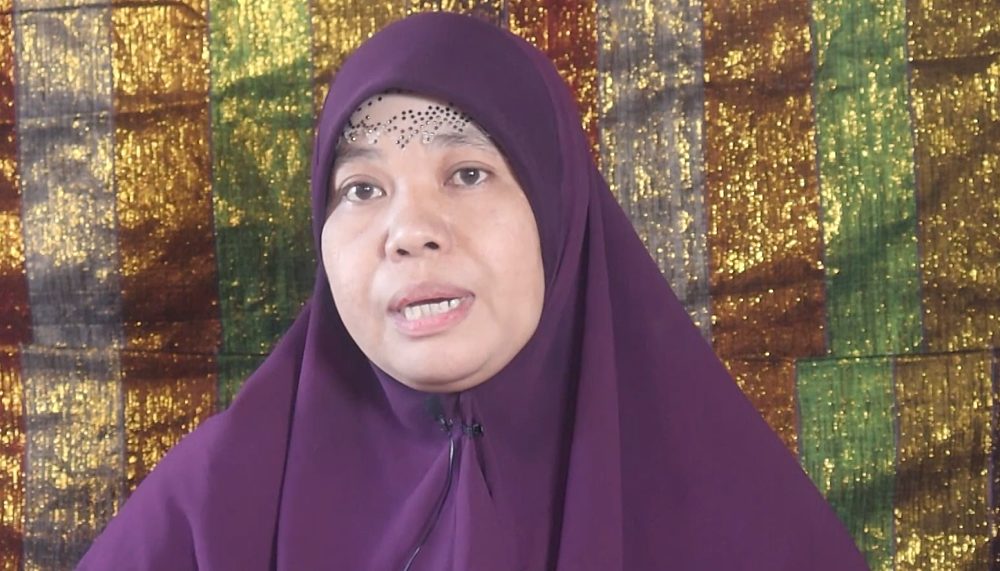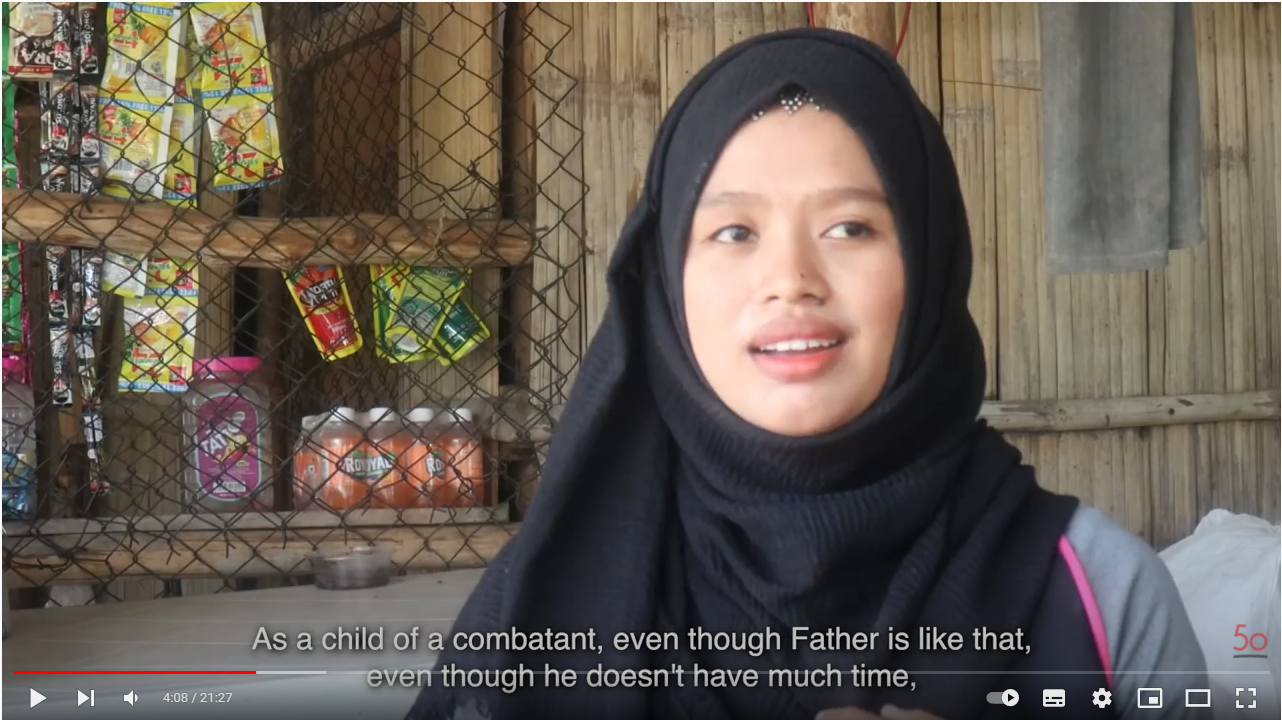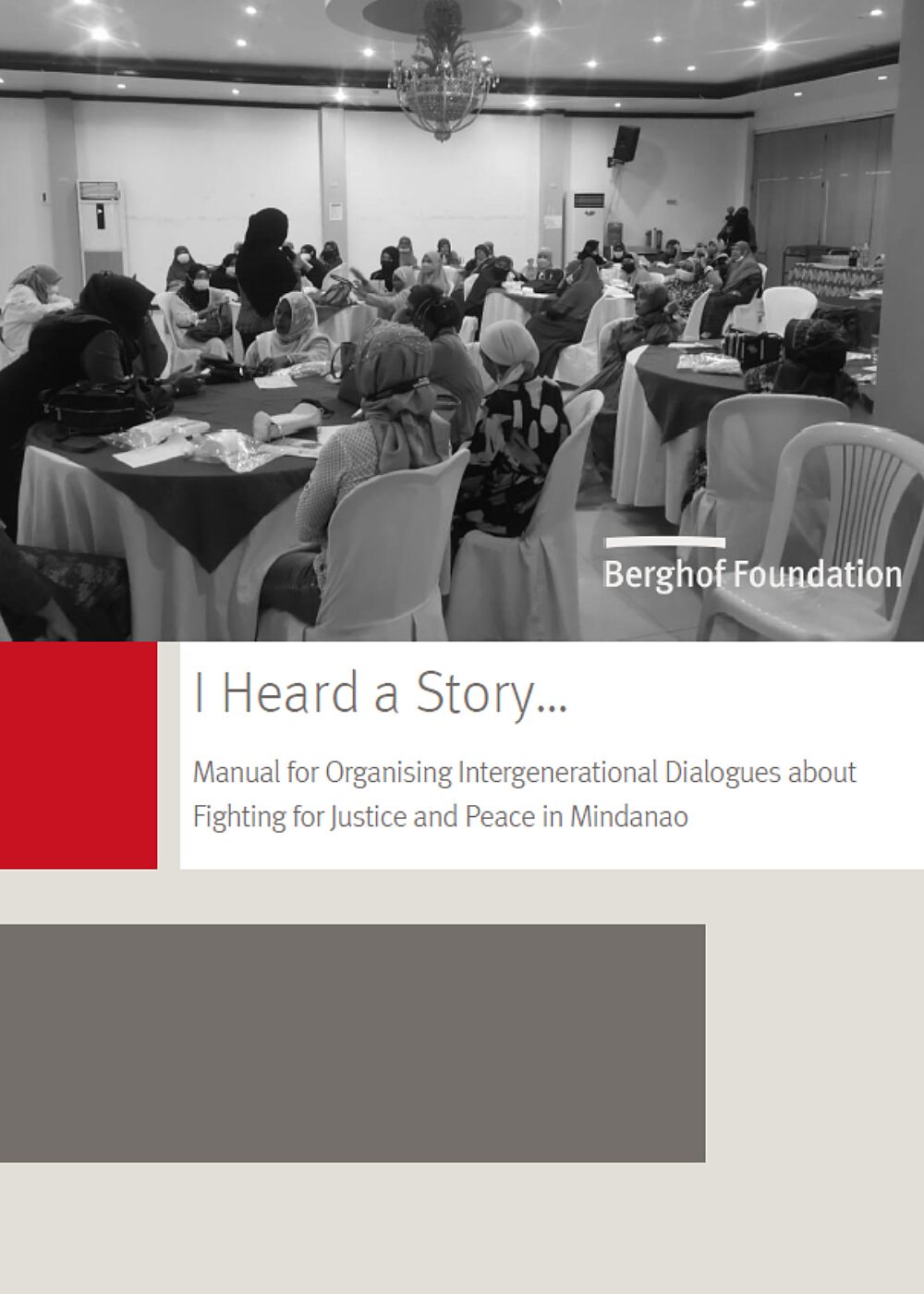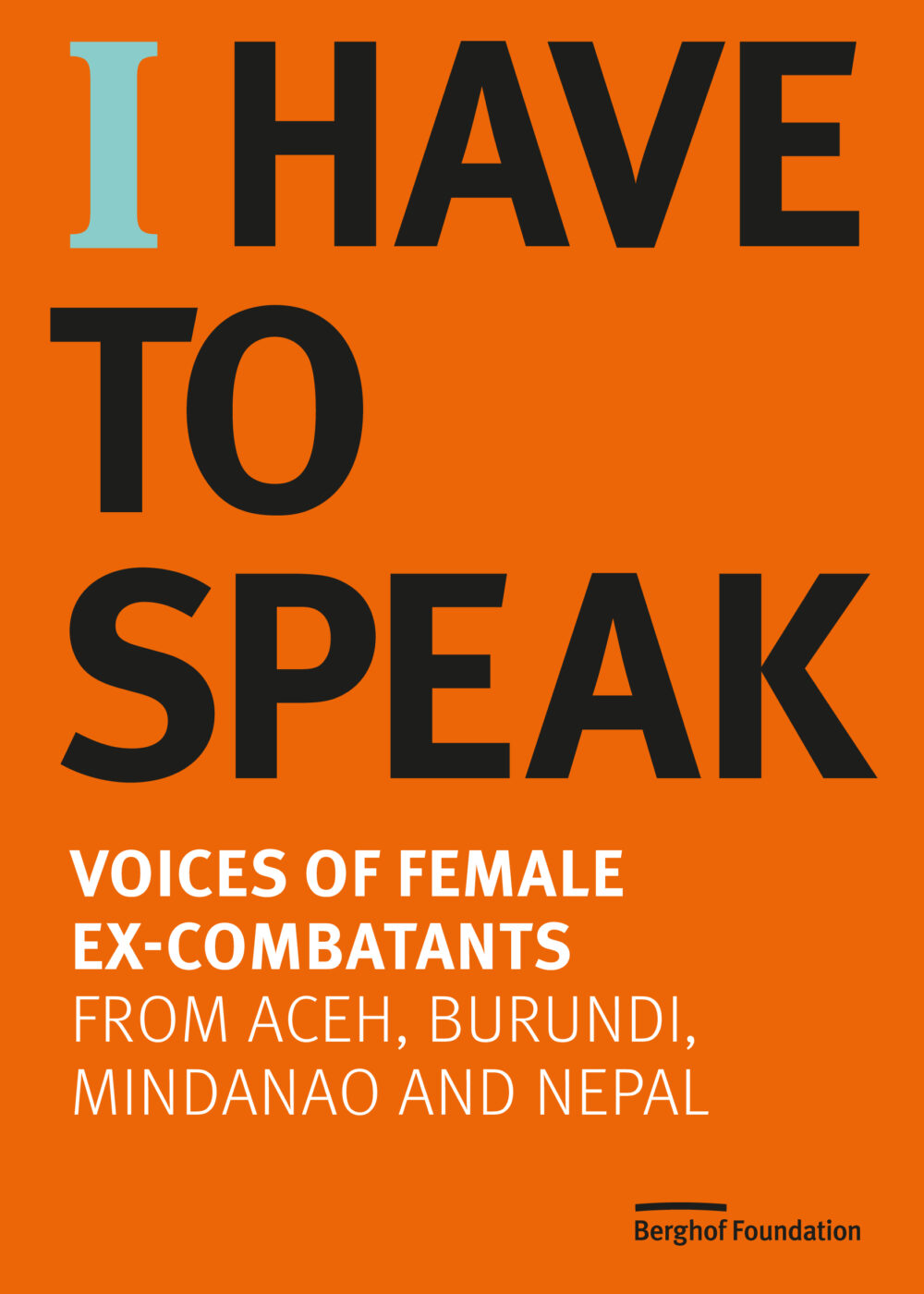FEATURE | 11 May 2022
Asking my sisters: Film and booklet released
Voices of female ex-combatants and their daughters from Mindanao

Experience the stories of two generations of women when female ex-combatants and their daughters share their stories.
This article has been edited and was originally published 15 December 2021.
This short film and booklet seek to give voice to several generations of female ex-combatants and inspire dialogue beyond generations. Women from the Moro Islamic Liberation Front (MILF) and their daughters share their stories from the post-conflict recovery process in Mindanao, Philippines.

Women's role in the struggle in Mindanao
During the MILF’s armed struggle for self-determination for the Muslim Bangsamoro people, women played a crucial role. Female combatants organised into several civilian and military entities. One of them was the Bangsamoro Islamic Women Auxiliary Brigade (BIWAB), an all-female force that was part of MILF’s armed forces. BIWAB’s main mission was to ensure the safety of the combatants by attending to their medical needs, and to serve as a reserve force. These are their stories as they share them with their peers.

For this film and booklet young female MILF members interviewed war veterans and their daughters. The former fighters talk about why they joined MILF’s armed struggle, and reflect on their experiences being women during a war and how they experienced gender dynamics within the movement. They also share their hopes for the future, both for their country and the coming generations.
Their stories, as diverse as they are, are a powerful testimony that female combatants have to be taken seriously for building sustainable peace. But the materials also aim to inspire intergenerational exchange in order for this dialogue to support the Bangsamoro community in healing from their traumas and to inspire post-war recovery processes that address the experiences of young people and women.
Download the booklet: EN-English
Different groups, differentiated perspectives
There are rarely only two sides to every conflict and all actors have their own perspective and right to speak about it. The Moro National Liberation Front (MNLF) was a revolutionary group that also fought for the right to self-determination of the Bangsamoro people. The MILF was once a part of the MNLF as one group that fought and negotiated with the government which resulted in the establishment of the Autonomous Region in Muslim Mindanao (ARMM). Over time, the incentives for change began to differ amongst the group, which led to the formation and separation of the MILF from the MNLF. Despite the MILF becoming their own group and continuing to militarily pursue a purer form of autonomy, the MNLF did not stop politically organising, and the women who were once a part of the group, and their daughters, have organised tirelessly for peace since the MNLF ceased its military operations.
Therefore, our team produced an additional short film where they interviewed former MNLF members and their daughters. They recounted their experiences as women during the war and life after armed conflict ended in Mindanao, Philippines.
Background on the project
The films and booklet were produced in a participatory research project. Three local researchers from MILF’s BIWAB brigade, and one local researcher closely familiar with the MNLF, together interviewed 15 women, former MILF and MNLF fighters and their daughters, to collect first- hand knowledge on women’s experience during and after armed conflict.
The films and booklet show how women self-organise, and how they fought for religious freedom, self-governance, gender equity, sustainable development and education, for themselves but more importantly for next generations.

The testimonies collected by the local researchers demonstrate how different generations made different experiences during armed struggle of a non-state armed group and after the group had signed a peace agreement and demobilised. Their findings show how important it is to amplify the voices of women and youth.
Both groups are extremely vulnerable during violent conflicts but also play an exceptionally important role in strengthening resilience within communities. The intergenerational dialogue in this film and booklet highlights how the female ex-combatants contributed to their communities over the past three decades and how the younger generations work to continue their efforts through peaceful means.
To dive deeper into the topic, take a look at our previous publication and short film in which female ex-combatants from Aceh, Burundi, Mindanao and Nepal share their stories.
Ongoing work with women in resistance and liberation movements
In addition to this project, we also work to create a peer-leaning network for women in resistance and liberation movements (RLMs) to bridge the gap between their strong role in armed struggle and their under-representation in peace processes and within societies after armed conflicts end. Find out more about our work to support them in becoming post-war democratic leaders here.
Media contact
You can reach the press team at:
+49 (0) 177 7052758
email hidden; JavaScript is required


